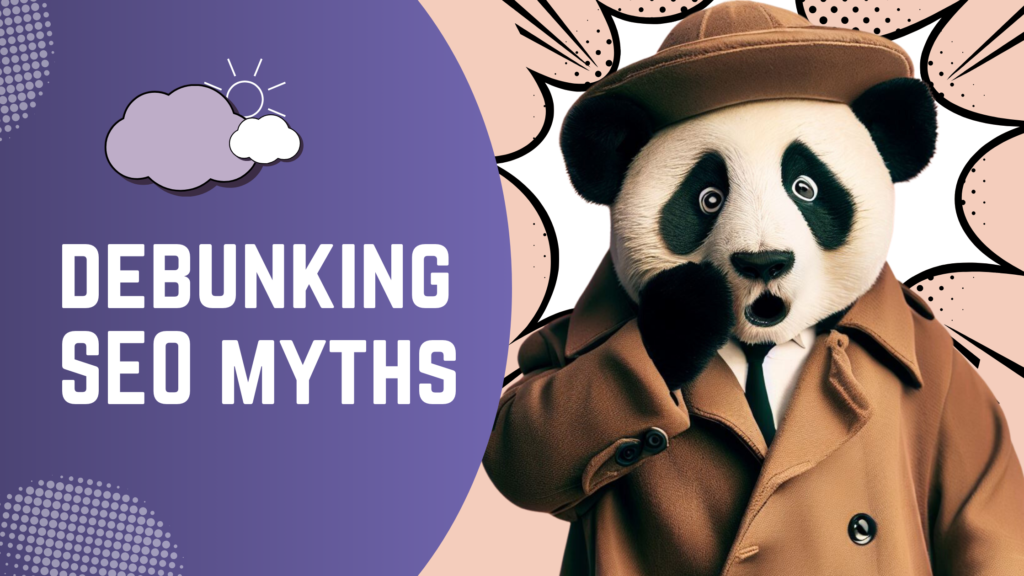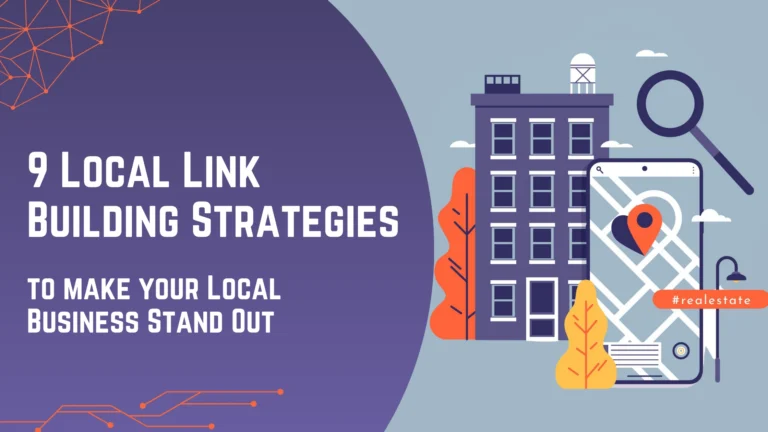In this article, you will learn the SEO myths that you need to ignore in 2020 and beyond.
Without wasting your time…
…Let’s get started
What is SEO According to You?
If you consider SEO as a mere ranking factor, then you are wrong.
SEO helps search engines understand what your page is about, and how authentic and relevant the content in your website is in regards to a specific search query.
The full form of SEO is Search Engine Optimization. That means optimizing your website for increased visibility when people search for services and products related to your website on search engines such as Google, Bing, etc.
The better your visibility is, the better will be your chances to attract potential customers to your site and retain existing customers.
However, there are no “secret” methods to bring in more traffic or improve the ranking that will work like a charm. When it comes to Google ranking algorithm factors, that’s always been a secret.
Google considers more than 200 factors while delivering a search query result.
If someone brags about getting your website to the top using their “Secret” method, then beware as some SEO service providers use black hat SEO techniques.
Though that may push your website to the top, that’s temporary and you may end up getting penalized.
Google always maintained a decent amount of secrecy about how the Google algorithm works.
Though there is a lot of advice available about SEO. Some of them are genuinely true but there’s a lot of SEO myths that you need to steer clear of.
With so many answers and advice on Search Engine Optimization, it’s hard to debunk what is true and what is not.
For you, our SEO experts have busted and listed 16 common SEO myths that you should always stay away from.
(1) SEO is Dead
There are more than 63,000 searches made every second on Google on any given day. Though that doesn’t match the amount of fresh content that is being created and published every day.
As a matter of fact, “Is SEO Dead” has a global search volume of just 7200 on Semrush, but there are millions of content trying to answer that question.
You can find numerous blogs/articles on any given topic. The supply is far more than the demand. Moreover, Google is now answering questions.
It’s no longer showing search results where users will need to visit the website. It displays results directly on the SERP for a few specific queries like, “today’s weather”, “traffic on blah-blah street”, etc.
This has resulted in more no-click searches. In fact, the number of no-click searches has gone up to 9.5 % in the past few years.
To be at the top of the chain, you need to game up your strategy. So, No! SEO is not dead. Rather it is the exact opposite of death and it’s thriving and will remain.
(2) SEO Is A One Time Activity
Google released three broad core algorithm updates in 2020 and 7 updates for pre-released algorithms in 2021, till now.
If that doesn’t answer your question, then here is what you need to know about one-time SEO and why it is not the ideal SEO strategy.
One-time SEO means that once the website is optimized. This means no more maintenance, updates, or modifications will be made on the website once it is updated.
Now based on the data given above, do you think your website will survive the fight among those thousands of websites providing the same business/service?
No! It will be thumped. SEO is an ongoing process that needs regular updates and modifications.
The market is constantly shifting and going through changes rapidly. When it comes to SEO, you can’t anticipate the next move.
The competition is constantly changing. Not just the competitor, but how, where, why, and when you can compete.
Keeping a constant track of all these changes requires full-time effort.
Even if you are working on On-Page SEO, you still need to keep working on off-page SEO, like link building. This will help you to improve your website’s traffic.
(3) Google Only Ranks ‘Fresh’ Content
Let’s start with one generic long-tail keyword research on an everyday topic that hasn’t changed much in all these years.
-HOW TO KILL A MOSQUITO-
Here’s the search result:
The featured snippet page was last updated in 2019 but still, it managed to be on the top.
One of the aspects of ranking is relevancy.
Google doesn’t care about the age of content if the topic is generic like “hot to make tea”, “how to ride a bike”, “ how to light a campfire”, etc because nothing has changed about them since the past few years.
However, if your website talks about trends, updates, etc., then freshness will matter a lot. It is one of the important ranking factors that matter for update/trend-related queries like “SEO update”, “climate change”, etc.
(4) Long-tail Keywords Are Easier To Rank For
Long-tail keywords have low competition but that doesn’t mean it is easy to rank them. Long-tails have lower search volume than their counterparts.
This means people send a query using short tails more than long tails.
Screenshot of a long tail and short tail search volume difference
You can use long-tail as a supporting keyword as that will help you build a solid keyword strategy.
(5) Duplicate Content Will Get You Penalized
Google has announced on multiple occasions, on multiple platforms that there is NO PENALTY for duplicate content.
So, even if you have duplicate content on your website, you won’t be penalized by Google. However, duplicate content can lead to:
- Backlink dilution
- Outranked by a syndicate or scrapped content
- Unwanted URLs in SERP
- Waste of crawl budget
There are tools available to check duplicate content on a website. If there are exact duplicate content, fix them to improve your SEO quality.
(6) Social Signals Help in Google Rankings
Google says that social signals are not a direct ranking factor. This means it won’t directly boost your rankings in Google.
Google values social signals (Indirectly) but they can have an impact on Google SEO in an indirect way, as well.
The more your content gets shared, the more likely it is to be seen, which can lead to more people viewing and linking to your content. And that, of course, can end up having a big impact on your Google rankings.
It can be very difficult to get organic links these days, so anything you can do to increase the odds of your content getting linked to and viewed is a very good thing!
(7) Keyword Research Isn’t Important
Keyword research is a process of investigation and refinement. The aim of keyword research is not only to identify keywords that relate to your business and target audiences but also to find ‘good’ keywords that are going to bring you plenty of traffic and not too much stiff competition.
Keyword research isn’t just about finding words that your audience may be searching for, but more about finding quality keywords that are going to make a positive impact on your site.
(8) Google Ads Help in SEO Rankings
Running a Google Ads campaign does not help your SEO rankings, despite some myths and claims.
PPC ads like Google Ads are paid online advertisements which appear next to relevant searches and other content on the web.
However, PPC ads can be helpful in connecting with a wider audience online.
According to an official article from their Google Ads resources center, the article states:
Running a Google Ads campaign does not help your SEO rankings, despite some myths and claims.
In addition to this, Danny Sullivan, a member of the search team, also confirmed in a tweet that Google search is completely separate from Google Ads. This means that any metrics or data from Google Ads has no impact on organic results.
(9) Google Cares About Domain Authority
Google never introduced anything like Domain Authority (DA); it’s launched by third-party websites like Moz and Ahrefs to scale the backlink profile of a website.
As Google didn’t invent the DA, it doesn’t care about these metrics. However, they care about your backlink profile, and you must work on your link building to have a plethora of quality links.
(10) Bounce Rate Is a Ranking Factor
It is a big misunderstanding among many SEOs that bounce rate plays a significant role in ranking websites in search engines such as Google.
Many SEO experts don’t know that having good bounce rates is not always a guarantee for good search engine rankings, and at the same time, a bad bounce rate is no cause for concern.
If no Google Analytics code is installed, Google will not be able to measure the bounce rate anyway.
If the bounce rate was a ranking criterion, Google would have to treat websites with Analytics Codes differently, and websites without the Google Analytics Code would have the freedom to offer bad content, so to speak, and Google would not be able to take notice of it.
If this was correct, and SEOs would find that out, any SEO would avoid embedding the Google Analytics code. That would be the end for Google Analytics.
(11) The More Backlinks The Better for Ranking
Links do play a role. But they’re not the be-all and end-all. There are a ton of factors that will help your SEO – and there are plenty of things you should be focusing on instead of backlinks.
The more quality backlinks you have (i.e. the more links to your website there are), the more credible your site appears. This can help boost your rankings and make your content appear higher on the results page.
Notice the emphasis on quality there. That’s because it’s not just about the number of backlinks you get. Where they come from makes all the difference.
Links from trusted websites are the bullseye you should be aiming for and will give you the biggest boost to your rankings. In contrast, if your backlinks come from low-authority websites, it can drag your website down with them.
That’s why black hat SEO tactics like paid links are a risky play. You’re buying links with no real insight into what kind of website they’re going on.
(12) Guest Blogging is Dead
Nuh-uh. Guest blogging is very much alive, as proven by the thousands of reputable online publications that publish content produced by equally reputable guest authors every single day.
What is dead, however, is the notion that guest blogging is an OK way to build sweet links for SEO gains. Put simply, guest blogging is cool, guest blogging for SEO gains is not cool.
(13) Backlinks Don’t Matter
Don’t fall for the whole “backlinks don’t matter” myth. They do matter and will continue to matter.
Why?
Because they are one of the best ways that Google has of determining the relevancy of a website for different search phrases
Backlinks are important for SEO because they signal to Google that another resource finds your content valuable enough to link to it within their own content. As a website earns additional backlinks, search engines infer that the website possesses valuable content worth ranking well on the SERPs.
(14) Keyword Stuffing Will Help You Rank
Keyword stuffing is widely condemned by search engines, and the activity could lead to a search penalty.
An artificially high keyword density can result in unnatural, hard-to-read copy and a negative user experience.
Shoehorning your desired keywords into every possible sentence won’t help your page rank any higher on Google. This practice, better known as keyword stuffing, is a form of black hat SEO that is frowned upon by search engines.
(15) You Have to Publish Content Regularly
The number of posts you publish depends on several factors, including your schedule, your topic, your blog length, and the overall goal for your target audience.
If you post every day, you run the risk of burning yourself out. Writing for your blog will become a chore and something you dread every day. Add in the competing pressures of your personal and family life, and you may not be able to keep up.
Other times, your blog topic or style simply won’t sustain a daily blogging schedule, so your post quality goes down. And readers leave in droves.
Posting a lot of content also means that it’ll be hard to keep it updated and relevant. It can also make your older content harder to find.
Few people will look past the first page of your blog to find that nugget of information to share, even if it is better than what’s on the front page!
(16) Meta Descriptions Affect Google Rankings
Google has stated that meta descriptions are not a ranking factor in their search algorithms. However, that does not mean they are unimportant and that you can afford to ignore them.
Meta descriptions can indirectly impact SEO through click-through rates. This is very important when you’re fighting between 1st, 2nd and 3rd place. There, things like technical SEO and backlinks tend to matter less.
Wrapping Up
Your SEO strategy is essential for reaching both short-term and long-term goals.
Knowing what works and what is a myth can take you a long way in improving your rankings and gaining more customers.
There are plenty of pitfalls and traps to a successful SEO strategy and implementation. With Google’s ever-changing algorithm updates, staying on top of your site’s SEO is essential, but stay away from the SEO myths.










